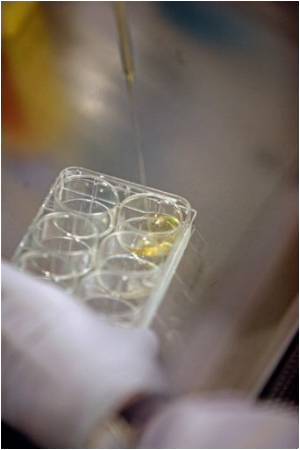A new study has suggested that the widely known PSA blood test for prostate cancer in men may get a second life as a much-needed new test for breast cancer in women.

However, the levels of PSA in healthy women are usually so small that only ultrasensitive tests can measure them.
To improve PSA detection in women, the researchers built a tiny fiber-optic biosensor using gold nanoparticles and PSA antibodies to detect and report PSA levels via a fluorescent signal.
The biosensor's sensitivity (its ability to detect elevated PSA levels in cases of breast cancer) and its specificity (how well it avoids false predictions of breast cancer) are comparable to those found in using PSA as a biomarker for prostate cancer.
"Furthermore, these values may compare favorably with the sensitivity and specificity of the current screening methods for breast cancer such as clinical examination and mammogram," said the researchers.
The finding appears in the ACS journal Analytical Chemistry.
Advertisement

![Prostate Specific Antigen [PSA] & Prostate Cancer Diagnosis Prostate Specific Antigen [PSA] & Prostate Cancer Diagnosis](https://images.medindia.net/patientinfo/120_100/prostate-specific-antigen.jpg)













